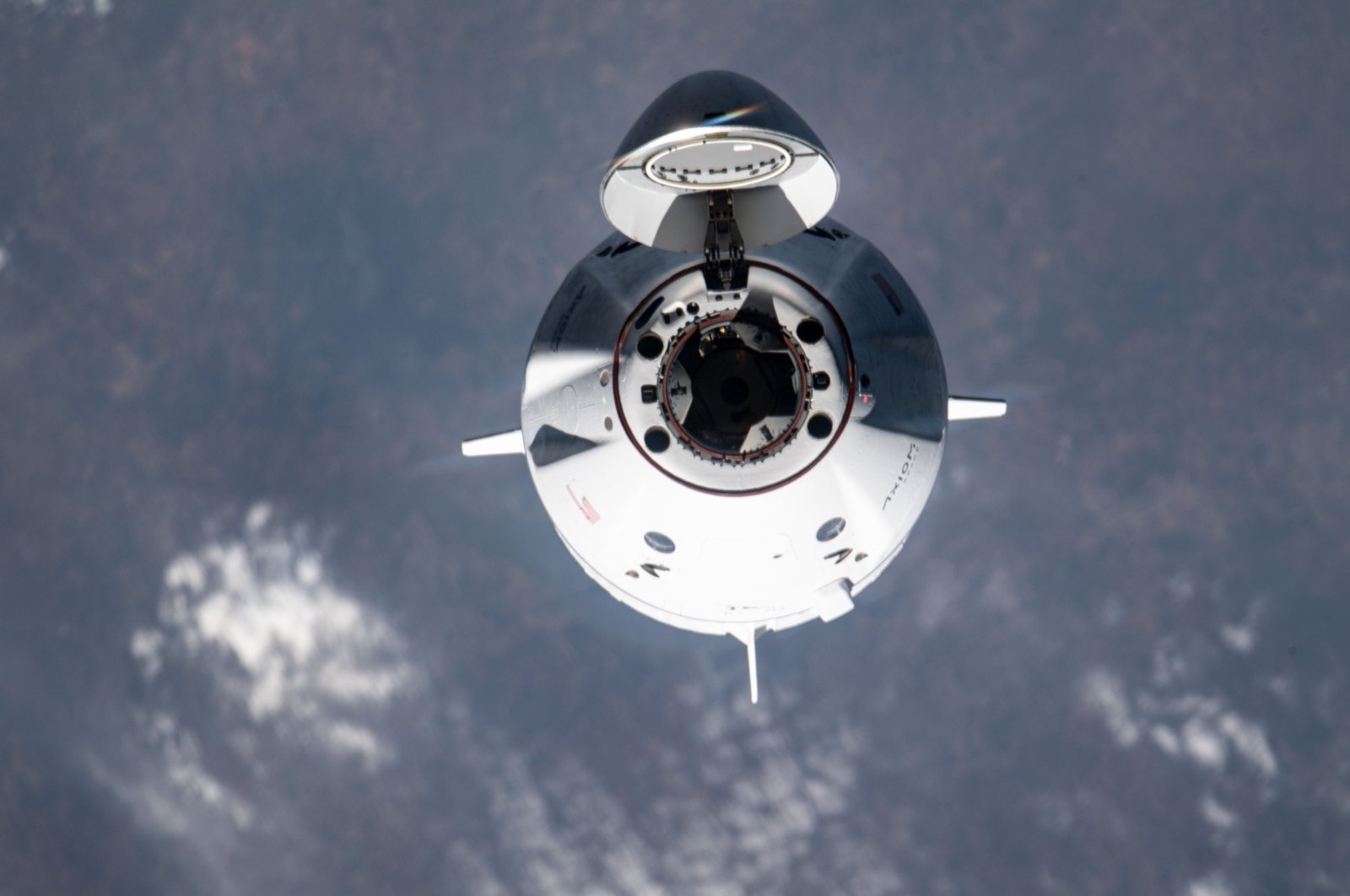
Türkiye's first space traveler, Alper Gezeravcı, conducted 13 scientific experiments on the International Space Station (ISS) during his 14-day journey.
As part of the Axiom-3 Mission, Gezeravcı was launched on Jan. 18 from NASA's Kennedy Space Center in the U.S. state of Florida on a Falcon 9 rocket from private space company SpaceX, docking with the ISS on Jan. 19.
After around 36 hours on the journey, the international crew reached the station on Jan. 20. The ISS's seven-person crew welcomed the Axiom-3 team with a ceremony, the four-person crew was responsible for conducting more than 30 experiments.
SpaceX delayed the return of the Axiom-3 Mission crew, including Türkiye's first space traveler Gezeravcı, from Feb. 3 to at least Feb. 5 due to unfavorable recovery conditions off Florida's coast. The crew, aboard the Dragon capsule, remained healthy while teams monitored weather conditions for the next undocking opportunity.
Gezeravcı's experiments
The first study was part of a project known as "Extremophyte," developed by Ege University in Türkiye's Aegean city of Izmir. Its focus is on revealing the transcriptome, a part of the genome, of plants exposed to salt stress, comparing the physiological and molecular responses of glycophytic and halophytic plants in microgravity. To do this, the project involves the use of next-generation sequencing techniques.
Developed by Yildiz Technical University in Istanbul, the second experiment, "CRISPR-Gem," sought to investigate the effectiveness of CRISPR gene editing techniques on plants in a microgravity environment, contributing to understanding and improving the defense mechanisms of plants as the skeletons of bioregenerative life support systems crucial for long-term space missions and humanity's extra-planetary future.
The "Algalspace" experiment, also developed by Yildiz Technical University, compared Antarctic and temperate microalgae growth in space, studying algae's use in oxygen regeneration, food supply and life support.
The "UzMAn" experiment by Istanbul's Bogazici University involved growth and endurance tests of microalgae species adapted to harsh earthly conditions, studying their metabolic changes and performance for potential life support systems.
The "VocalCORD" experiment by Istanbul's Halic University aimed to detect disturbances in the respiratory system from voice frequency changes, utilizing smartwatch AI and investigating zero gravity effects on the human voice.
From Istanbul's Nisantasi University, the Oxygen Saturation experiment aimed to identify low gravity-induced differences in air oxygen levels using AI support.
Another experiment was developed by the Marmara Research Center of the Scientific and Technological Research Council of Türkiye (TÜBİTAK). Called "gMETAL," it investigated the effects of gravity on the creation of a homogeneous mixture between solid particles and a fluid medium without a chemical reaction.
During the experiment "Pranet" by Mus Science and Art Center students, the effect of propolis on bacteria in microgravity environments was investigated.
The "Message" experiment, developed by Istanbul's Uskudar University using CRISPR gene editing methods, focused on identifying genes with undiscovered functions and finding which immune cells are directly affected by gravity during space missions.
The "UYNA" experiment investigated the effects of an antigravity environment on properties in melting and solidification processes, aimed to make a significant contribution to Türkiye's ability to develop next-generation materials for aerospace and defense industries.
In the "Miyoka" experiment from the Tubitak Space Technologies Research Institute, Gezeravcı assembled lead-free components on an electronic card to later subject them to detailed examination back on Earth, testing the effects of microgravity on lead-free soldering.
The experiment "Myeloid," developed by Hacettepe University in Türkiye's capital Ankara, aimed to measure and evaluate the impact of travel and space conditions, as well as cosmic radiation damage, on participants of space missions at the level of myeloid-derived suppressor cells.
The "Metabolom" experiment from Ankara University explored the negative effects of space conditions on human health, examining physiological and biochemical changes in gene expression and metabolism of astronauts participating in space missions.
Space voyage years in the making
After President Recep Tayyip Erdoğan announced Türkiye's National Space Program in 2021, efforts were launched to put a Turkish person into space.
Applications were published by the Turkish Space Agency in May 2022, with the selection of candidates being based on their work and expertise in engineering, physics, medicine, astronomy and sports.
Last April, Erdoğan announced that Gezeravcı would be the first-ever Turkish space traveler, unveiling his name at Teknofest, Türkiye's premier technology event.
The Turkish Space Agency was established in 2018 and announced its space program in 2019, as well as plans to send a crewed mission into space.
In remarks stressing the significance of the Ax3 mission as a scientific endeavor and a source of inspiration for children and young people, Erdoğan voiced hope on Tuesday that the mission "would be a new beginning," adding: "We will continue this mission. We will always aim higher."
